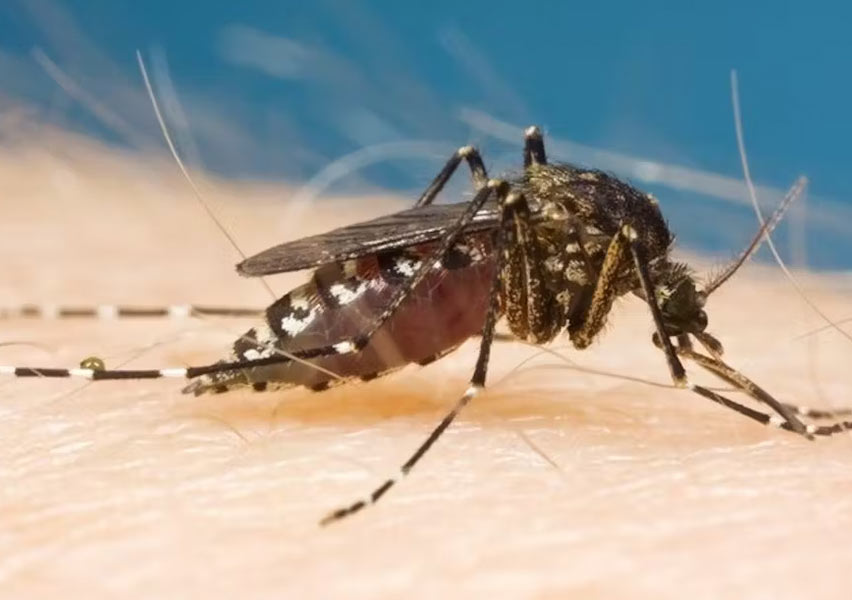Ross River virus
Ross River virus (RRV) is an RNA virus of the Togaviridae family, genus Alphavirus. It is the causative agent of epidemic polyarthritis, a mosquito-borne disease endemic to Australia and Papua New Guinea, with most cases occurring during the warm, humid months between February and May. The disease can also be found sporadically in other South Pacific islands such as Fiji, American Samoa, New Caledonia, and the Cook Islands.
Clinical characteristics:
After an incubation period of 7 to 9 days (range: 3 to 21 days), symptomatic individuals typically present with fever, fatigue, myalgia, and particularly polyarthritis, which may affect multiple joints and persist for several weeks. A non-itchy, maculopapular rash often appears on the trunk and limbs, sometimes preceding or following the onset of joint pain. In some cases, lymphadenopathy and headache may be present.
The disease is usually self-limiting and non-fatal, but symptoms may persist for weeks or months, particularly joint pain and fatigue. Children are more likely to have asymptomatic or mild infections.
Transmission:
Ross River virus is transmitted to humans through the bite of infected mosquitoes. Key mosquito vectors include Aedes vigilax, Culex annulirostris, and Aedes notoscriptus, which breed in salt marshes, fresh water bodies, and containers near human dwellings. Reservoir hosts include marsupials (kangaroos, wallabies) and birds. Human-to-human transmission does not occur.
Diagnosis:
Diagnosis is primarily clinical, based on symptomatology and travel history to endemic areas. Laboratory confirmation is achieved through serological testing (IgM/IgG) or PCR detection of viral RNA in blood samples.
Treatment:
There is no specific antiviral therapy. Management is symptomatic and includes rest, hydration, and analgesics or anti-inflammatory medications for joint pain and fever. Most patients recover completely, though convalescence can be prolonged in some cases.
Prevention:
Preventive strategies focus on avoiding mosquito bites:
- Use of insect repellents
- Wearing light-colored, protective clothing
- Installing window and door screens
- Eliminating standing water around living areas to reduce mosquito breeding
- Avoiding outdoor exposure during peak mosquito activity (especially evenings)

